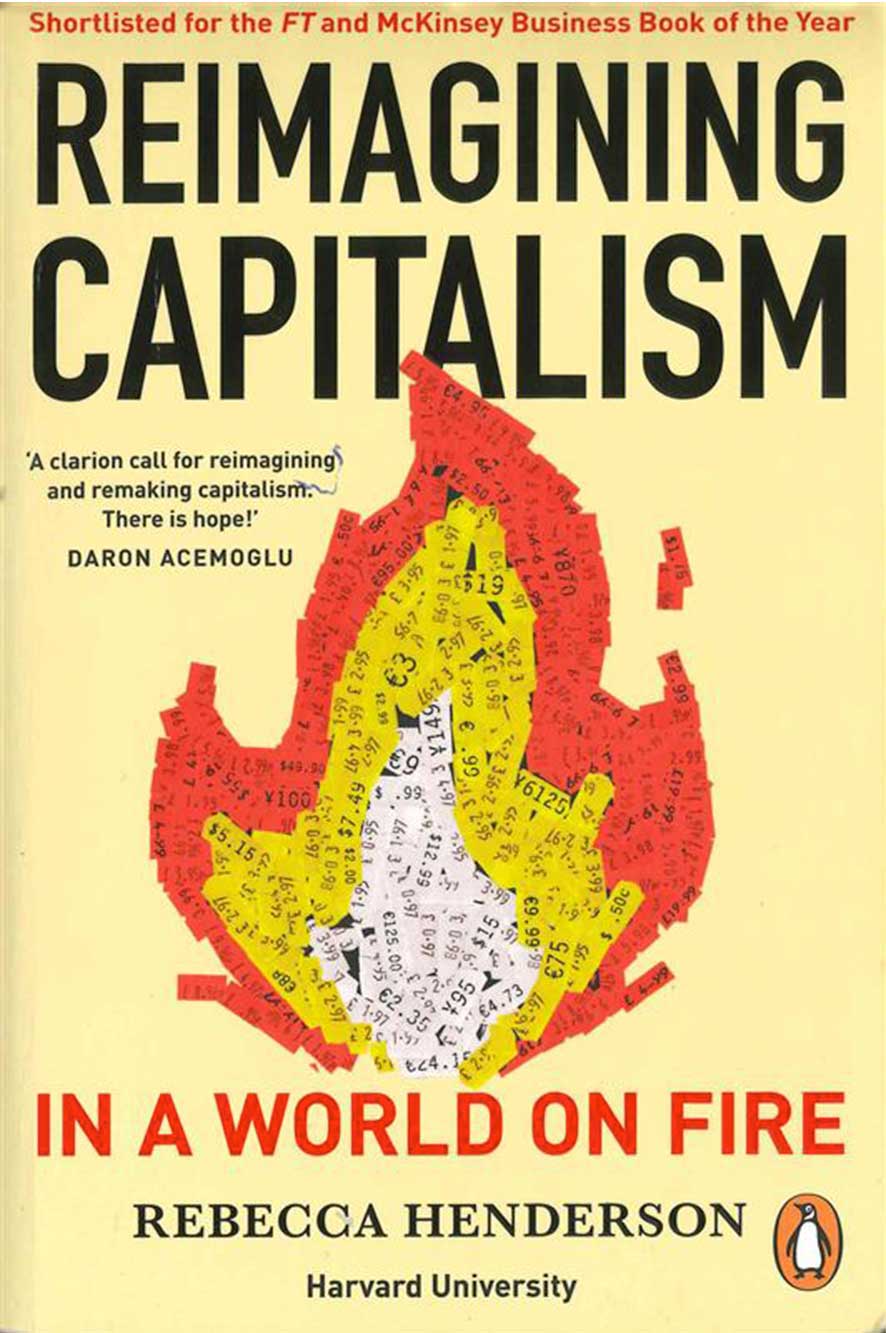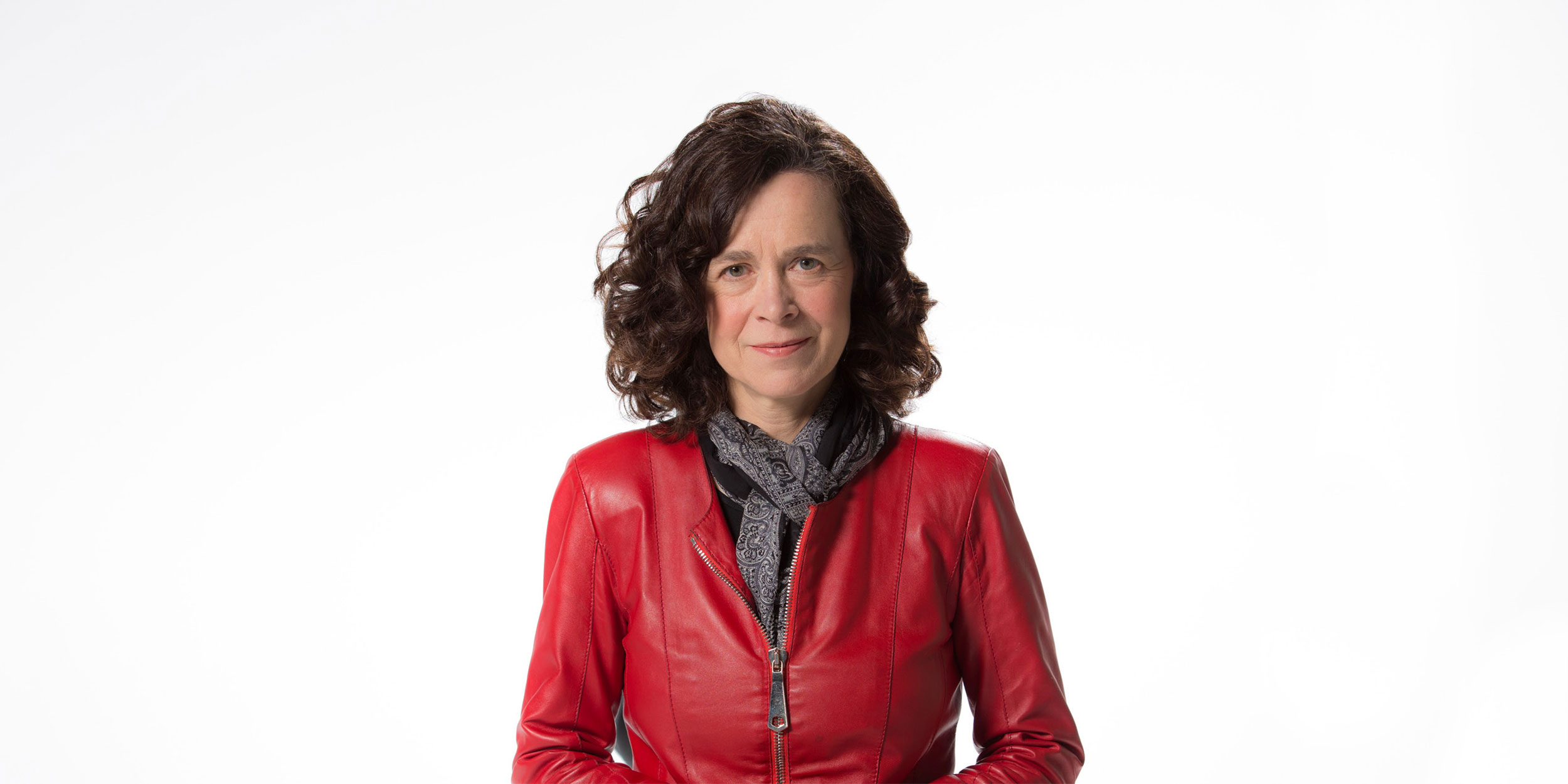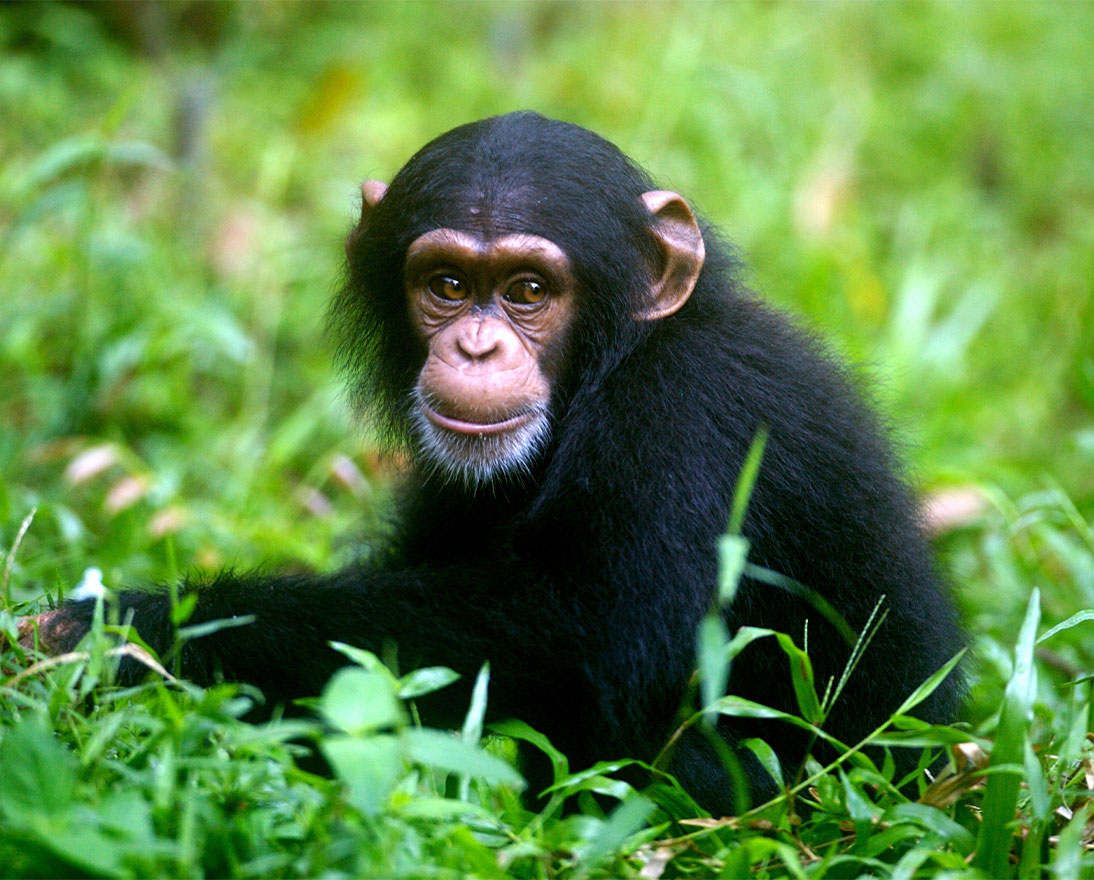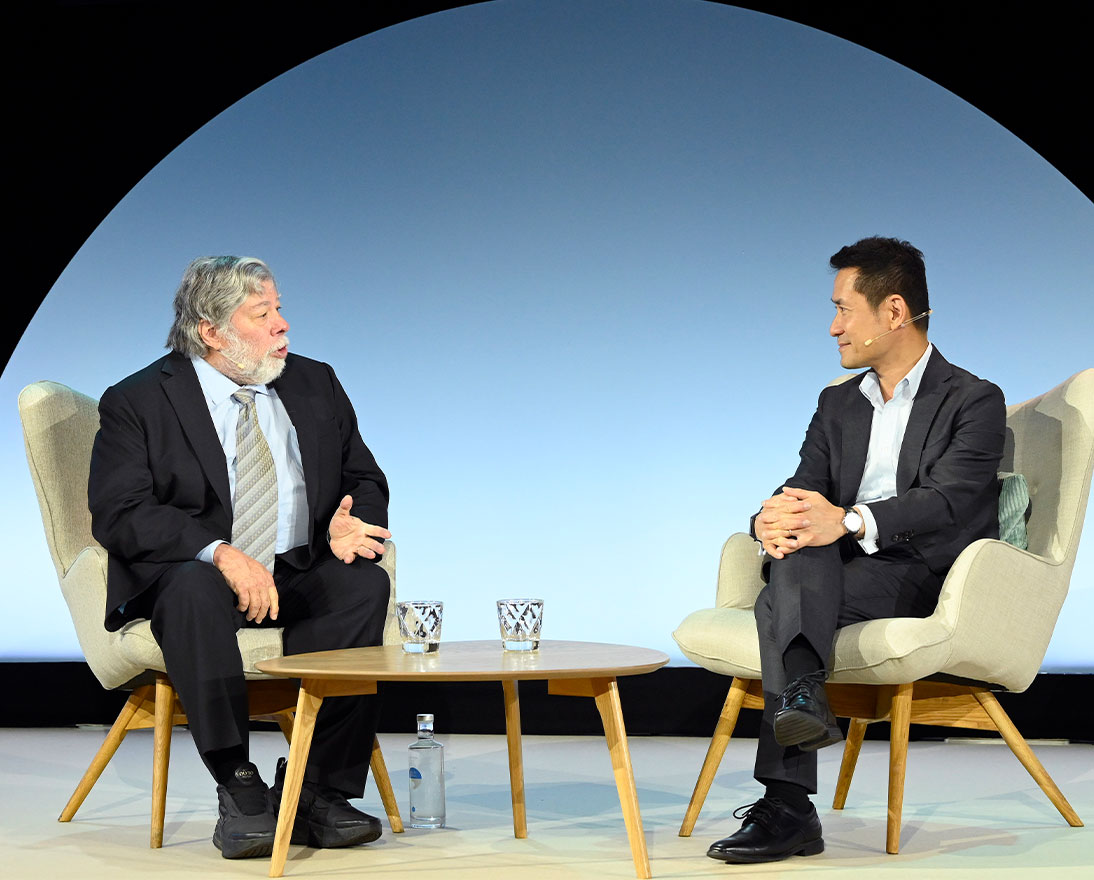Rebecca Henderson and the book that may save capitalism
SustainabilityArticleNovember 29, 20226 min read
The Harvard academic’s urgent book challenges the business community to do what’s right. It made her an ideal guest for the latest Zurich Talks.
Early in Rebecca Henderson’s Reimagining Capitalism in a World on Fire, there’s a cartoon, the only one in the book, by Tom Toro, whose wit often graces the pages of The New Yorker. In a post-apocalyptic landscape, a man, possibly a teacher, clothes tattered, speaks to three children over a campfire. “Yes, the planet got destroyed,” he tells them, “but for a beautiful moment in time we created a lot of value for shareholders.” It’s both hilarious and terrifying and – especially with the word “Armageddon” casually tossed around recently – not beyond the realm of possibility.
This existential threat is the raison d’être of Henderson’s urgent book, which is both a brutally honest look at how modern capitalism has failed us (and the ecosystem) and how capitalism can provide solutions moving forward.
It made her an ideal guest for the latest edition of Zurich Talks, which posed the question: How can we create a greener, more inclusive society? She was as captivating in-person – or remotely on-screen, in this case – as she is on the page.
‘People, profit, planet’
“We don’t have the kind of balance of people, profit and planet that I think many of us would like to see,” an enthusiastic Henderson told an equally enthusiastic audience at Quai Zurich Campus. “I am optimistic about the human race. When we are up against the wall, we know how to act. When our children are threatened, when our lives are threatened, we move….If we decide we need to do this, we can do it. We have to make the decision.”
Henderson has pulled off a rare feat in the book world: producing a work that’s more and more relevant the farther away it drifts from its publication date, which was 2020.

Book smart: The tome that may save capitalism – and the planet.
You don’t have to be a genius, or Maoist for that matter, to see that capitalism, over time, particularly the last three or four decades – even as it’s lifted millions out of poverty – has left far too many behind and in the process has ravaged the planet in search of resources and growth – and value for those aforementioned shareholders in the cartoon.
How many times in just the last couple of years have images of wildfires – in California, Portugal, Greece, name the place – played across our screens. And forget about windstorms and floods – there have been too many to list recently. Or pick any medium to large city in the U.S., the world’s wealthiest nation, and see with your own eyes the homelessness and despair.
But Henderson – the John and Natty McArthur Professor at Harvard University – is hardly a Maoist. Nor is she calling for a Marxist revolution. She doesn’t even wag her finger. “The problem is not free markets,” she sensibly writes in the book. “The problem is uncontrolled free markets.”
‘Make a decent profit decently’
It wasn’t always this way, as she reminds us. In the early 20th century, Edwin Gay, the first dean of Harvard Business School, hoped to produce future leaders who would “make a decent profit decently.” (So much for that.)
She also cites this Business Roundtable report from 1981, at the dawn of the Reagan-Thatcher ’80s (and six years before Gordon Gekko): “The long-term viability of the corporation depends upon its responsibility to the society of which it is a part.”
Written in clear, conversational prose – refreshingly un-academic, in other words, and free of business jargon – Henderson draws on past case studies where industry has done the right thing and how that can set a feasible pathway forward. For instance, she details how Norsk Gjenvinning, the largest waste handling company in Norway, disrupted a corrupt sector and improved the sustainability of the business while becoming highly profitable – and in the relatively short time between 2012 to 2018.
Or how Toyota, in part because its “respect for people” was not only one of its core values on paper but in practice as well, went from a minor player in the auto industry in the 1950s to becoming the world’s largest producer by 2008.
‘Business must step up’
There are dozens of other examples, with plenty of good actors in this play and few out-and-out villains. In Henderson’s hands, this isn’t about payback, though the hugely influential economist Milton Friedman appears out-of-date in the current zeitgeist. It was Friedman, whose thinking took hold after the Second World War, who wrote: “There is one and only one social responsibility of business – to use its resources and engage in activities designed to increase profits.”
If the book is dire on the one hand – the planet, and by extension all of us, are in deep, let’s say, manure – it’s hopeful on the other. Capitalism got us into this mess, but, Henderson suggests, it can get us out of it with ingenuity, creative thinking and innovation, specifically “architectural innovation,” which, she writes, changes “the relationship between the components of a system without changing the components themselves.” The much talked about metrics of ESG – environmental, social and governance – are “a work in progress,” in her words, and will not be enough to get us where we need to go, “but they are already changing investor behavior,” with 20 percent of all total financial assets under management invested in ESG-based information as of 2018.
The book is actually a celebration of can-do capitalist spirit. (As an aside – and no spoilers here – Henderson ends the book with a very personal, very moving, beautifully written flourish, worthy of the best literary memoirs.) She reiterates again and again in Reimagining Capitalism that creating a sustainable capitalism will take hard work, that it won’t be easy. And while she’s very clear that industry can’t do it alone – government intervention is absolutely essential – ultimately, she writes, it’s big business that “must step up.”
It’s this or bust, because the world is on fire. Lucky for us, so is the intellect of Rebecca Henderson.


